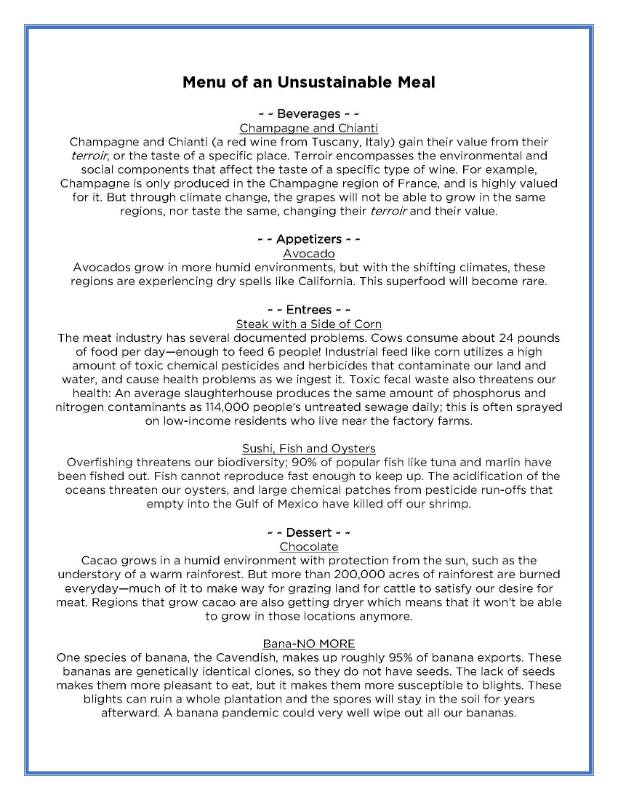The Future of Food
A food system encompasses all processes and resources that go into food from production to consumption. Traditionally we have used a local food system, which is a closed circle: we produce, buy, and consume locally. This benefits community and creates social unity. But globalization made it easier to produce food in one location then ship it elsewhere, which has a high carbon footprint. This leads to significant environmental, economic, and social problems, as the menu shows:
- Wealthy, developed nations like the United States take land and resources from poorer, developing nations to grow crops for export, and Indigenous people cannot use the land for their own food.
- The industrial food system has a high carbon footprint, because we grow food in one place, ship it to processing plants, then to stores, and finally to homes.
- The long production chain creates higher waste, obscures who the producers are, creates a lack of knowledge about where our food comes from, and increases our sense of risk.
- Industrial food systems require high amounts of toxic pesticides and herbicides, which run off into our waterways and leach into our soil.
- Monocropping, or only growing one type of food, creates a lack of diversity in our diets, and forces many healthy food sources towards extinction.
- Increased demand for fish has led to overfishing our oceans and the fish cannot reproduce fast enough to keep up.
- We are currently producing the most food in the world, yet the most people facing starvation. This is because a lot of the food we produce, like corn, goes towards feeding livestock instead of going to those who need it.
- Wealthy nations like the U.S. waste 40% of all food as it passes through the supply chain. The average household wastes ¼ of all the food we buy.
- Climate change will affect what kind of food future generations can have. Food like chocolate and avocado will not be able to be grown where they are. This is a problem for wine and champagne that is valued for its terroir, or the way it embodies the taste of the particular place it is grown.
- The oceans are getting more acidic since they are absorbing more carbon pollution. Oysters and other shelled organisms cannot form their shells properly in an acidic environment.
Curated by Katelin Gladback.




